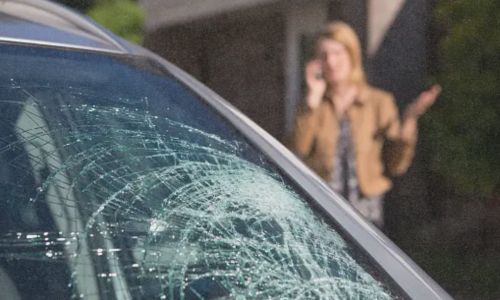Introduction: Insurance for Auto Glass Repairs Auto glass damage is a common issue that vehicle owners may encounter, ranging from minor chips to significant cracks. When it comes to insurance coverage for auto glass repairs, it’s important to understand the specifics of your policy. Many insurance companies offer comprehensive coverage, including auto glass repairs, but reviewing your policy and checking for any deductibles or limitations is crucial. Additionally, some policies may only cover certain types of damage or require you to use approved repair shops. Understanding how insurance coverage comes into play for auto glass repairs is crucial for making informed decisions and minimizing out-of-pocket expenses. This guide will break down the key aspects of insurance coverage for auto glass repairs. Types of Insurance for Auto Glass Repairs 1. Comprehensive Coverage: Insurance Coverage for Auto Glass Repairs Comprehensive coverage, often called “full coverage,” is the primary insurance type for auto glass repairs. This coverage is optional and is designed to protect against non-collision events, such as vandalism, theft, and, importantly, damage to your windshield or other auto glass components. Comprehensive coverage typically includes windshield repairs or replacements without a deductible, making it a cost-effective option for auto glass repairs. However, it’s important to review your policy carefully, as some insurance companies may have specific guidelines or limitations on the extent of coverage for auto glass repairs. 2. Deductibles: Insurance Coverage for Auto Glass Repairs You may have a deductible for auto glass repairs covered by comprehensive insurance. The deductible is the amount you’re responsible for paying before your insurance kicks in. Some insurance policies offer zero-deductible glass coverage, meaning you won’t have any out-of-pocket expenses for glass repairs. It’s important to note that even if you have a deductible for auto glass repairs, it may still be more cost-effective to use your insurance coverage rather than paying for the repairs out of pocket. Coverage for Different Auto Glass Components 1. Windshield Repair and Replacement Most insurance policies cover windshield repairs and replacements. Some policies may even cover multiple windshield repairs within a specific timeframe before a replacement is necessary. This coverage typically includes damage caused by rocks, debris, and other common hazards on the road. However, reviewing your policy to understand any applicable limitations or exclusions is important. Some insurance companies may require you to use their approved glass repair shops for these services. 2. Side Windows and Rear Windows Comprehensive coverage typically extends to side windows and rear windows. If these windows are damaged due to covered events, your insurance should cover the repair or replacement costs. It’s worth noting that comprehensive coverage for side and rear windows may have a separate deductible from your main comprehensive coverage. This means you may be responsible for paying a different amount before your insurance kicks in. Additionally, it’s important to check if your policy covers the cost of window tinting or any aftermarket modifications to the windows, as these may not be included in the coverage. 3. Sunroof and Mirrors In some cases, comprehensive coverage may also extend to sunroofs and mirrors. If your sunroof or mirrors are damaged due to a covered event, your insurance should cover the repair or replacement costs. However, reviewing your policy to confirm whether these items are included in your comprehensive coverage is important. Additionally, similar to windows, there may be a separate deductible for sunroofs and mirrors that you would need to pay before your insurance coverage applies. Process for Filing a Claim 1. Document the Damage Before filing a claim, document the damage to your auto glass. Take clear photos from different angles, showing the extent of the damage. This documentation will be important when filing your claim and can help ensure you receive the appropriate coverage for your sunroof or mirrors. It’s also a good idea to keep receipts or invoices related to repairing or replacing these items, as your insurance company may require them during the claims process. 2. Contact Your Insurance Provider Contact your insurance provider to report the auto glass damage and initiate the claims process. Provide them with the documentation you have gathered, including the photos and any receipts or invoices. Be prepared to answer any questions about the incident and provide additional information they may need to process your claim. Doing this as soon as possible is important to ensure a timely resolution and avoid any potential complications with your coverage. 3. Schedule Repairs with an Approved Provider Your insurance provider may have a list of approved auto glass repair shops. Choose one from the list and schedule the repairs. By selecting an approved provider, you can ensure that the repairs will be done by professionals who meet your insurance company’s standards. Using an approved provider may also help streamline the claims process and expedite reimbursement for any out-of-pocket expenses you may have incurred. 4. Payment and Deductible If you have a deductible, be prepared to pay that amount to the auto glass repair shop. Your insurance will cover the remaining cost. If you have zero-deductible glass coverage, you won’t need to pay anything out of pocket for the repairs. It is important to note that the deductible amount may vary depending on your insurance policy, so reviewing your policy details beforehand is recommended. Additionally, choose to use a non-approved provider for the repairs. You may be responsible for paying the full cost upfront and seeking reimbursement from your insurance company. Considerations and Tips: Insurance for Auto Glass Repairs 1. Timely Repairs Address auto glass damage promptly. Small chips can quickly escalate into larger cracks, making the repair more complex and potentially requiring a full replacement. Timely repairs help maintain the structural integrity of your vehicle. 2. Insurance Coverage Review: Insurance for Auto Glass Repairs Regularly review your insurance policy to understand the extent of your coverage for auto glass repairs. Policies vary, and staying informed ensures you know what expenses are covered and what deductibles may apply. 3. Choose Professional Repair Shops Select a reputable

